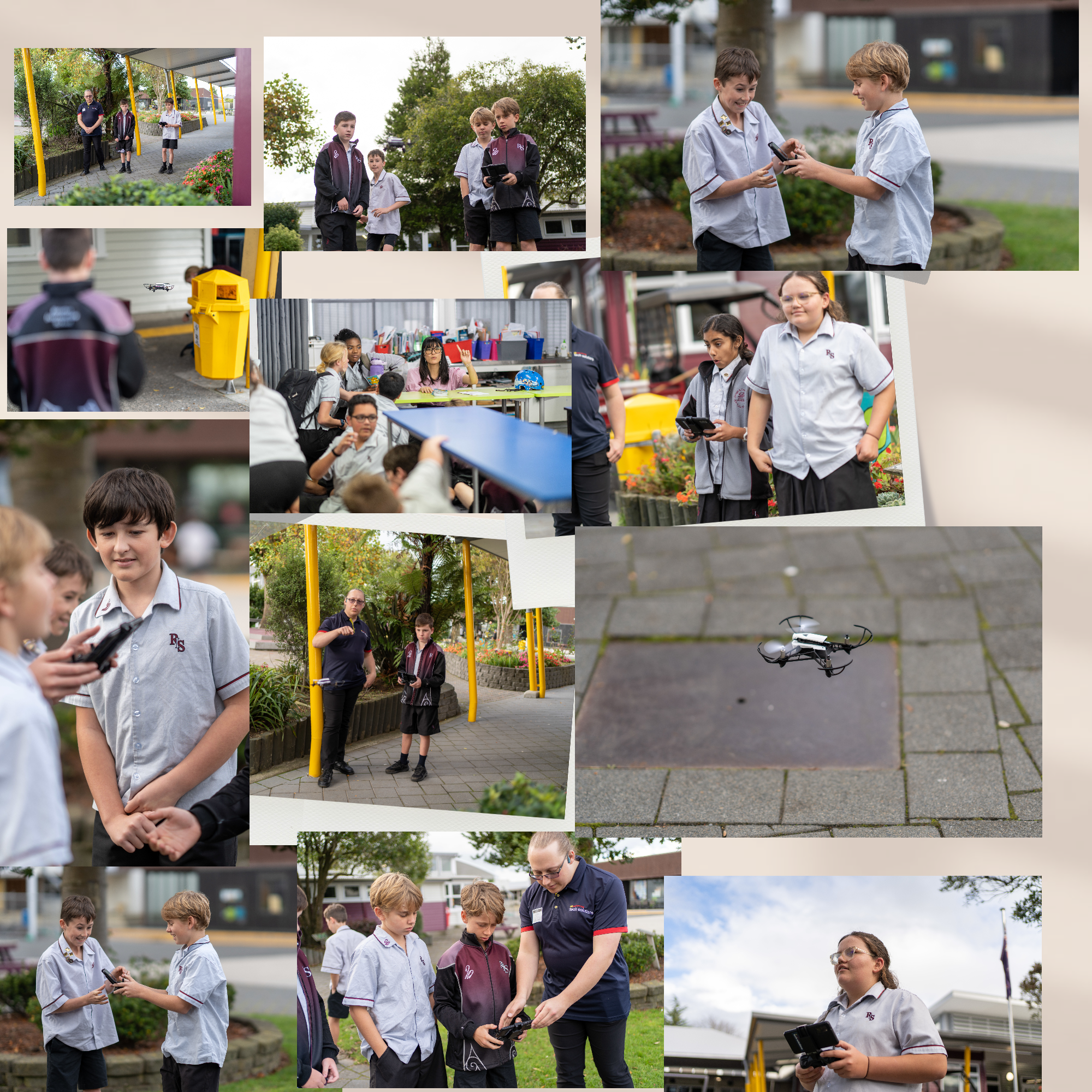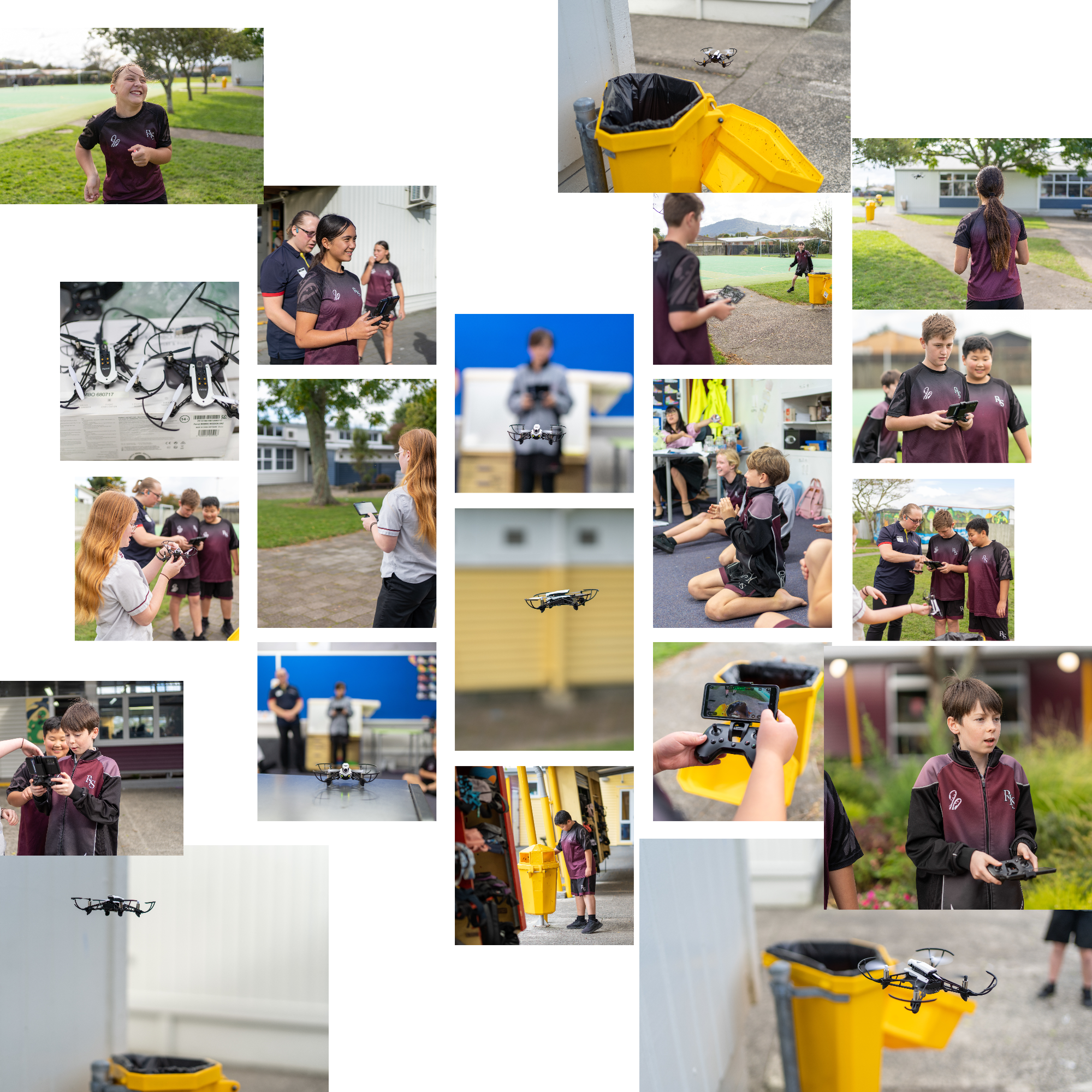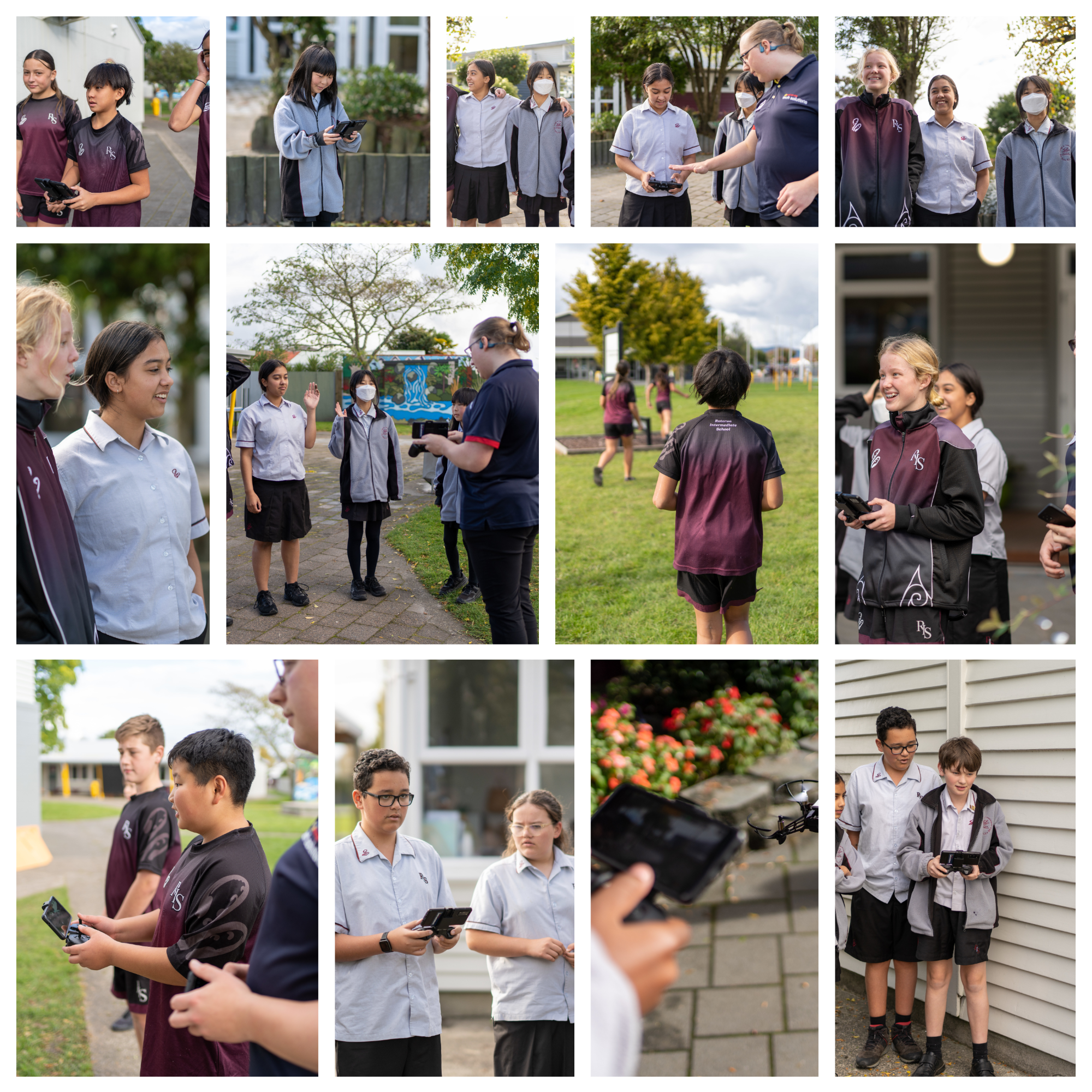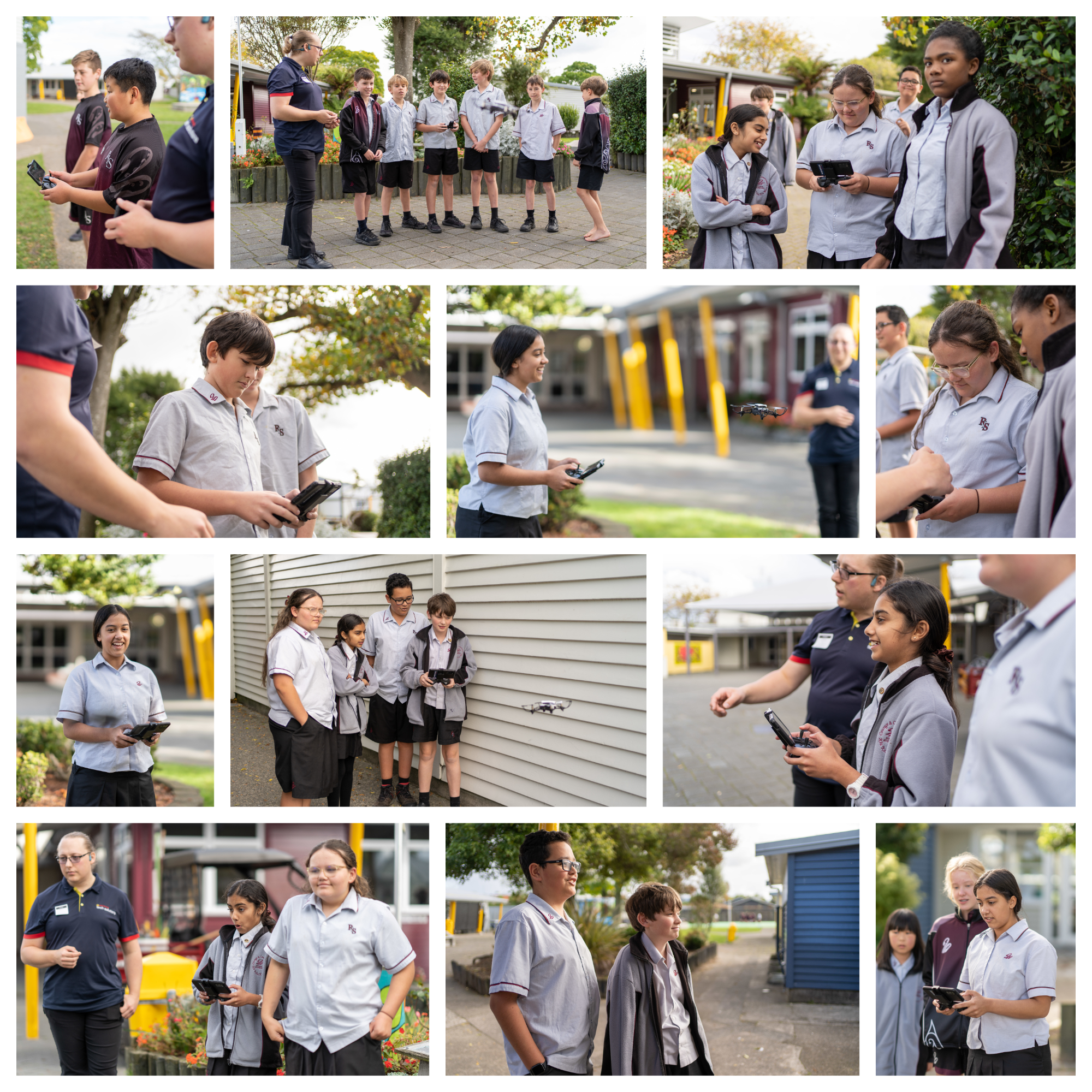Drones and rubbish identification
Andrew Mambondiyani (2022) wrote in Fair planet that ‘drone technology saves thousands from devastating cyclones’. The article describes how ‘a team of experts from the World Food Programme, in collaboration with partners, has created a flood-hazard model in Mozambique that calculates where damage from water is set to occur. The mapping of flood-prone areas was conducted across the entire Buzi river basin, which covers nine districts in the Sofala and Manica provinces in Mozambique. According to WFP, the results of this exercise benefited more than 1.1 million people who live in the 342 villages located along the Buzi river basin’.
The value and utility of drones in assisting humanitarian efforts was emphasized by Kalllaway in the PTC workshop to Rotorua rangatahi. Students were curious and engaged as they learnt about what drones are capable of doing.
Learning how to code and then navigate the drones around specific tasks around the school became the key focus for these future technologists.
The fun-filled day was too short, yet still rewarding. Seeing the bigger picture in terms of the ways that drones are actually being used in society provided further support to PTC’s effort to build capacity and effective skills in young people now for the roles required in the future.







